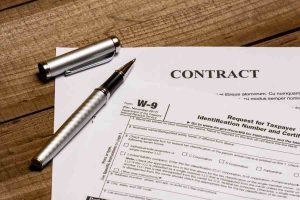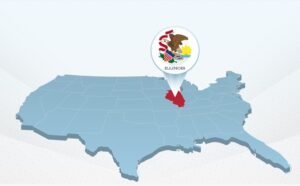A scrum board is a visual tool that breaks down tasks in a project into sprints or specific periods of time in which the work must be completed. Often used in software development projects, it improves team collaboration, as everyone sees the tasks and progress in real time. It lets managers immediately spot bottlenecks that…
What is
W-9 For Contractors: What It Is & How to Fill It Out
W-9 for contractors is a form that gathers basic information about independent contractors, like name and Social Security number. The W-9 form is used to verify a contractor’s tax ID number in order to report earnings (>$600) for the year. The form is easy to complete and doesn’t need to be submitted to the IRS….
What Is UCaaS? Defining Unified Communications as a Service
Unified communications as a service (UCaaS) is a cloud-based solution that combines calling, texting, conferencing, and collaboration tools within a single platform. Adopting a UCaaS solution enables businesses to access a wide range of communication tools from anywhere with minimal upfront costs. This article defines “what is UCaaS?” and explores the top providers, benefits, and…
Small Business Insurance Illinois, Costs & Requirements
In Illinois, small business owners play a key role in providing employment and contributing to the economy of the state. Illinois small business insurance requirements are workers’ compensation and commercial auto, with some exceptions for when other coverage may be required. However, owners need to take into account the type of business and the risks…
Returned Item Fee: What It Is & How It Affects Your Business
A returned item fee, also known as a nonsufficient funds (NSF) fee, is the fee your financial institution charges when it declines or returns a transaction because of insufficient funds. The average fee ranges from $27 to $40 per returned item. Returned items can financially damage your business, hurt your business’s reputation, and affect future…
Electrician Insurance: Cost & Coverage for 2024
Electrician insurance is a policy, or combination of policies, that protects your business from financial loss from claims of third-party property damage, workplace injuries, damaged business property, or business income loss. General liability insurance is the most common policy for an electrician but many may need more coverage, such as inland marine for their tools…
Do You Need a Business Savings Account? 7 Key Benefits
Creating a dedicated business savings account is a great way to start building funds for emergencies, taxes, and other business goals. Business savings accounts are Federal Deposit Insurance Corp. (FDIC)-insured to keep your money safe and offer higher interest rates to help grow your balances. Without a savings account to separate your savings from your…
New Employee Welcome Email: How to Write, Templates & Types
A welcome email to a new employee is one of the most important communications you can have with a new hire. It not only gives them the information they need to start their new employment with your company but also sets the tone for their journey. As such, it should be friendly and informative but…







